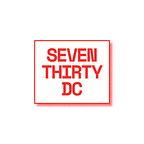Op-Ed: Tax Rideshare Companies on Downtown Trips, and Use the Revenue to Fund Better Public Transit
By Katie J. Wells, Kafui Attoh and Declan Cullen
Uber’s ride-hail app first arrived in Washington, D.C. just over a decade ago. Today, Uber is a household name, but much of its original sheen has worn off. Even the Silicon Valley mantra of “move fast and break things” now sounds more like a warning than a rallying cry. Many of us have come to re-evaluate Uber’s promises of technological progress and its effects on cities. A new proposal by the D.C. Council to impose a congestion fee on ride-hail services is part of this broader re-assessment.
The proposed bill will impose a $2 congestion fee on all ride-hail vehicles entering a specified zone of downtown D.C. at peak traffic hours. Mayor Muriel Bowser has stated her opposition to the bill calling it a “downtown killer.” She ignores the fact that congestion, pollution, and reduced public transit are already threatening to kill downtown and undermine any commitment the city has to sustainability and livability. In fact, existing congestion fees in Chicago, London, Stockholm, Singapore, and Milan have yet to kill a single downtown area.
Recent studies find that ride-hail services are exacerbating traffic congestion, increasing pollution, and reducing public transit ridership. One study from the San Francisco County Transportation Authority, for example, found that total CO2 emissions over a 12-month period from Uber cars in California were nearly equivalent to the emissions released from burning 81,000 acres of land. Perhaps worse still, such emissions are often the product of trips with zero customers. Between 30% and 50% of the time ride-hail cars are on the road, they are empty — either waiting for a future ride request or on their way to pick up a passenger. The consequences of all this ride-hailing are easy to predict: more congestion, more emissions, and cities yet further from meeting their climate commitments. D.C. Council’s new proposal, would go some way (although more will be needed) toward addressing these problems.
The response from Uber and Lyft has been predictable. In a text to customers, Uber cited inflation and the rising costs of living as the primary reasons that lawmakers should reject the proposal. Such a fee, they argue, would only “increase ride-hailing prices” for commuters already squeezed by rising costs. However, increasing the price of ride-hailing is precisely the point. These companies have long been subsidized by both venture capital investment and pliable government. And research consistently shows that ride-hail users are more likely to be young, white, well-educated, and wealthy. The entire premise of the proposal is to compel ride-hail services, and their customers, to actually pay the full costs of the increased congestion that such services impose on public streets. While this plan may burden some riders with a slightly higher fare, the new fee could generate more than $10 million to fund overnight bus lines in the city. Reducing congestion and increasing the frequency of buses will certainly yield cost savings for others — namely bus riders who cannot afford to regularly use ride-hail services.
Other cities have adopted similar congestion pricing plans, to much success. But congestion is not the only issue at stake here. The broader question this proposal tackles is: what kind of city do we want to build and who gets to decide?
A decade ago, the answer to that question by the D.C. Council was nearly unanimous: D.C. wanted an Uber-friendly city. The Council passed bills so much to the liking of the company that its co-founder Travis Kalanick called them a “blueprint.” As we argue in our forthcoming book, Disrupting DC: The Rise of Uber and the Fall of the City, Uber’s ability to avoid regulatory oversight and careful evaluation has always been a sign of the very low expectations that we, and our policymakers, have for what our cities could be. Once again, ride-hail companies are presenting D.C. with a zero-sum game: allow tech companies free rein or face urban decay. Just as it was ten years ago, this is a false choice. The real choice is whether we want to build a city that prizes sustainability, equity, and a concept of the public good, without monopolistic control of our streets by giant, profit-driven corporations.
Today, the answer to that question seems to be changing. And that’s good news. Policymakers are no longer so deferential to Uber and Lyft’s visions of the future. While building a more sustainable city takes considerable work, proposals like those surrounding congestion pricing offer a start. In addition to addressing the real problem of congestion, such proposals reveal how lawmakers committed to rebuilding a confident public sphere can break Silicon Valley’s stranglehold on public life.
Katie J. Wells is a postdoctoral fellow at Georgetown University. Kafui Attoh is associate professor of urban studies at the School of Labor and Urban Studies at the City University of New York. Declan Cullen is assistant professor of geography at George Washington University.
